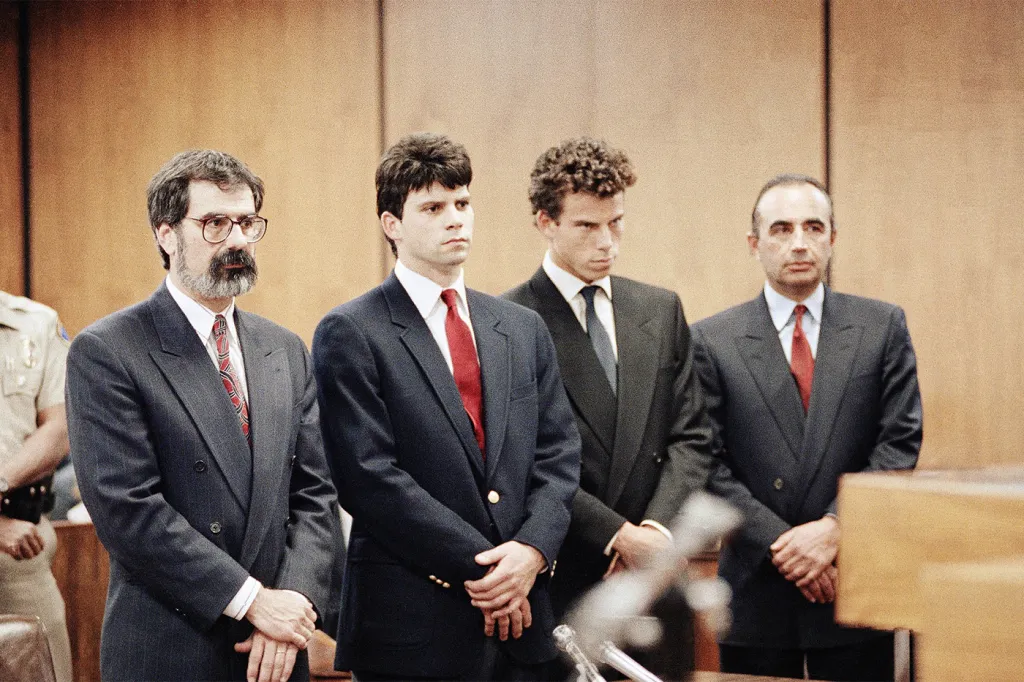For decades, the story of the Menendez brothers has captured public attention in a way few criminal cases have. Erik and Lyle Menendez, who were convicted in 1996 for the brutal murders of their wealthy parents in Beverly Hills, became a national sensation. The shocking details of their crimes, coupled with their allegations of long-term abuse, have made their case a touchstone in discussions of justice, family dynamics, and mental health. Now, almost 30 years later, a combination of legal shifts and public sentiment has many wondering: what’s next for the Menendez brothers? Could the brothers see release under new California laws, or will they remain incarcerated? Follow us here atBoohoo Appoints Mike Ashley as New CEO.
Menendez Brothers
In the late 1980s, the lives of Erik and Lyle Menendez seemed enviable. Growing up in an affluent Beverly Hills neighborhood with their parents, José and Kitty Menendez, they enjoyed every privilege. However, beneath this facade of wealth and success lay a toxic family dynamic. In 1989, Erik and Lyle stunned the nation when they were accused and later admitted to killing their parents. Their defense team presented shocking allegations, claiming the brothers had endured years of abuse at the hands of their father. This defense complicated the legal case, prompting widespread debate and dividing public opinion on whether the Menendez brothers were victims, cold-blooded killers, or some combination of both. Their trials ultimately resulted in convictions for first-degree murder and life sentences without the possibility of parole. The Menendez brothers’ case left an indelible mark on popular culture, with endless debates surrounding the true nature of their crimes and the harshness of their punishment.

In recent years, the Menendez brothers' story has resurfaced, fueled by both a resurgence of media interest and evolving legal frameworks. Documentaries, crime shows, and online true-crime communities have taken a renewed interest in the case, particularly around the controversial aspects of their trial. In addition, changing perspectives on justice, rehabilitation, and abuse have ignited discussions over whether the brothers' life sentences should be reconsidered.
Related: Agatha All Along (Series)
Related: Call of Duty: Black Ops 6 (Game)
DA George Gascón’s Perspective and California’s Evolving Legal Climate
In Los Angeles, District Attorney George Gascón, known for his progressive stance on criminal justice, has shown a willingness to reevaluate cases involving lengthy sentences and parole eligibility, especially for those convicted at a young age. Gascón's approach aligns with broader trends across California, where criminal justice reform initiatives are challenging punitive sentencing laws from the 1990s. Notably, in recent years, reforms have included measures to reduce prison terms for inmates convicted as young adults, especially if they have shown remorse, rehabilitation, or experienced circumstances that impacted their actions.
While Gascón has not taken a public stance on the Menendez brothers specifically, his general support for reviewing cases involving youth offenders and addressing underlying causes of crime has led to speculation about whether the Menendez case could eventually be revisited. Gascón has emphasized that California's legal system should focus on second chances and restorative justice, especially for those incarcerated as youths. The case of Erik and Lyle Menendez is emblematic of this new approach, making them potential candidates for reevaluation under recent legislative reforms.
Youthful Parole Under California Law and Its Potential Impact
In recent years, California's legal system has adopted youthful parole reforms that could impact cases like the Menendez brothers'. These reforms consider the unique developmental characteristics of younger individuals, who are often more impulsive, impressionable, and subject to familial influence. In 2018, California enacted Senate Bill 1437, which amended the felony murder rule to give individuals involved in certain crimes more opportunities for reduced sentences if they did not directly participate in the murder itself. Following this, Senate Bill 260 and Senate Bill 261 provided new avenues for inmates who were under the age of 23 at the time of their crimes, allowing them to request parole hearings after serving a significant portion of their sentences.
Though the Menendez brothers were convicted of first-degree murder, the new youthful parole framework underscores an evolving recognition of the complexities in cases involving youth offenders and abuse. Given that Erik was 18 and Lyle 21 when they committed the murders, these reforms could offer them an unexpected legal recourse. However, the severity and notoriety of their case may present hurdles, as high-profile cases tend to be scrutinized closely by parole boards.
Could the Menendez Brothers Be Released?
Public interest in the Menendez brothers’ possible release is higher than ever. California's parole guidelines for young offenders continue to evolve, and each new development adds hope for advocates of the Menendez brothers who believe they deserve a second chance. Parole boards consider factors like behavioral reform, remorse, personal growth, and the inmate’s capacity to contribute positively to society upon release. The Menendez brothers, who have maintained exemplary records in prison, may have a unique opportunity to demonstrate their rehabilitation.
However, releasing the Menendez brothers would be a controversial decision. Their case remains etched in the minds of many who believe that the gravity of their crime justifies their life sentences. Additionally, their notoriety has the potential to complicate the process, as public figures and victims' advocacy groups may influence parole decisions. Still, some believe that their exemplary conduct, paired with the trauma they reportedly endured, supports their case for parole. Furthermore, given the potential influence of DA Gascón and other reform advocates, there remains a possibility that a request for compassionate or youthful parole could be considered.